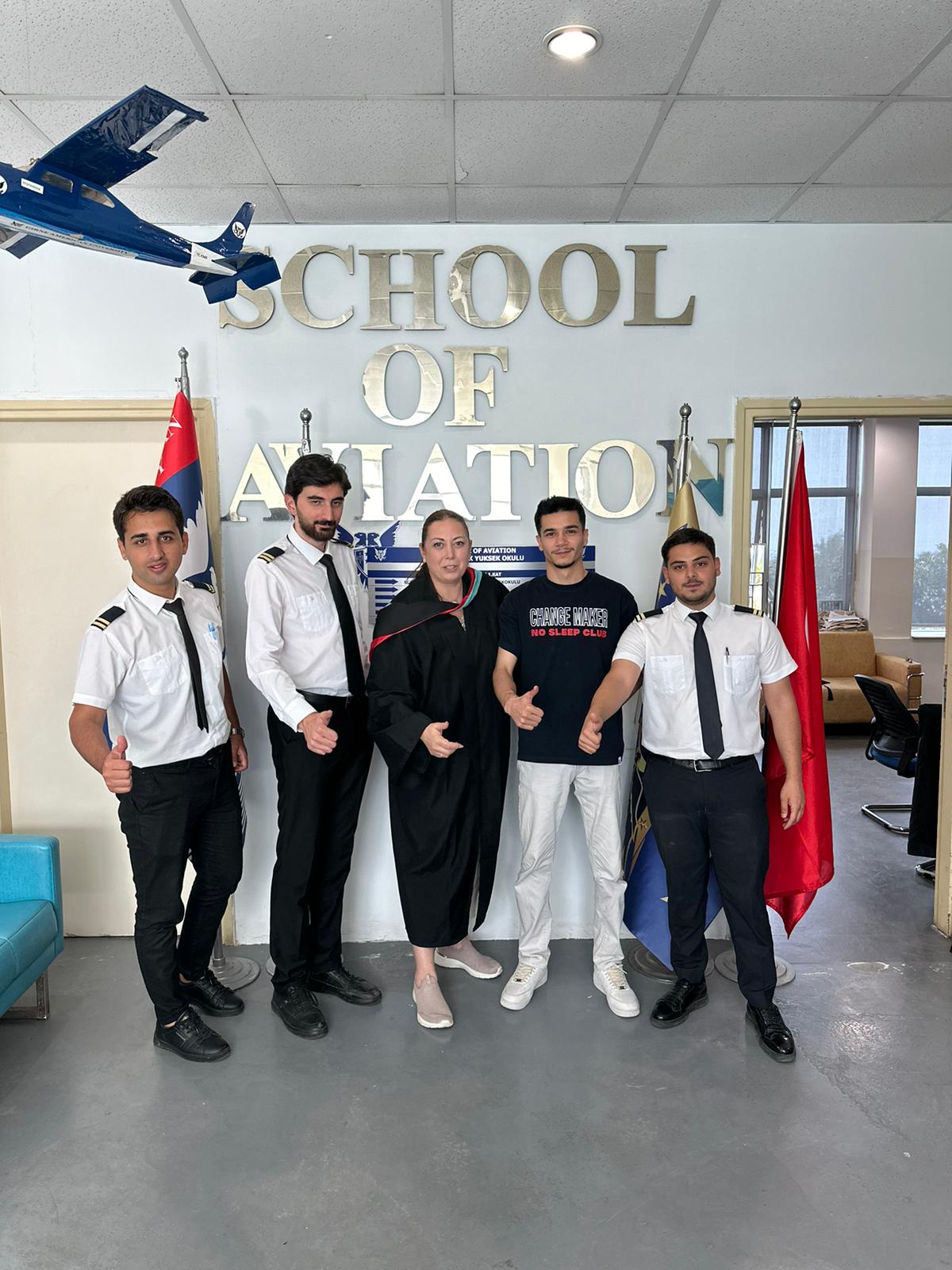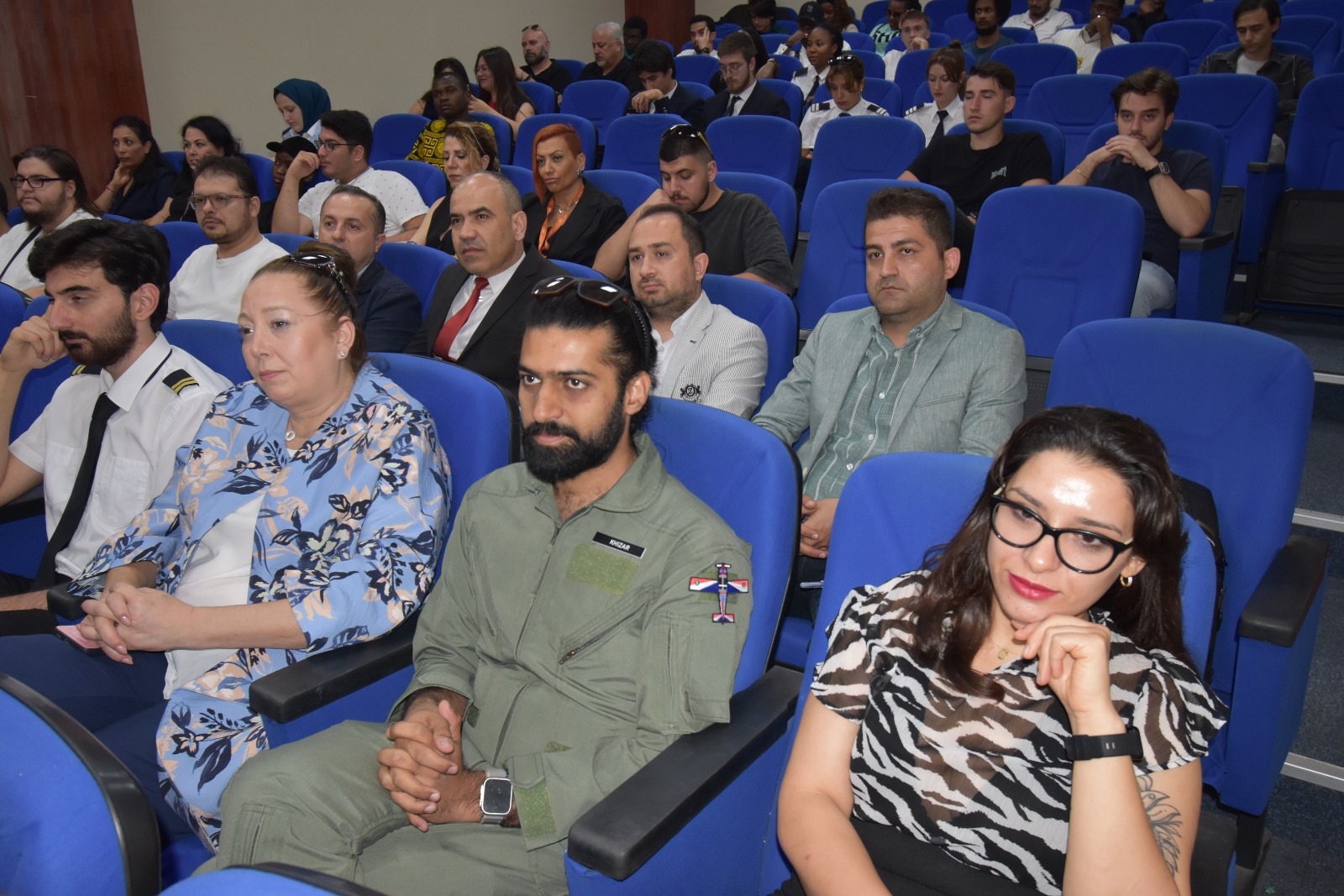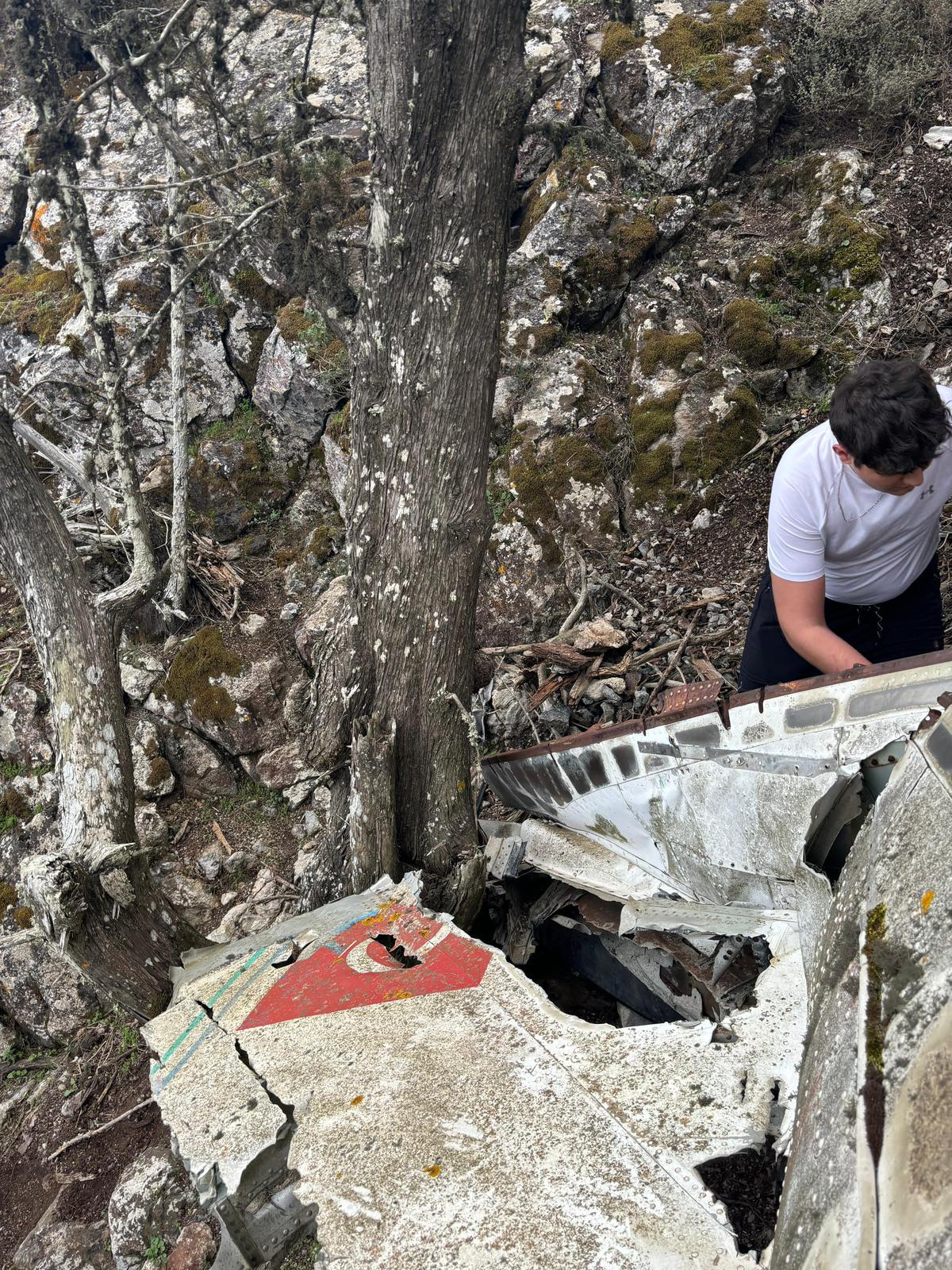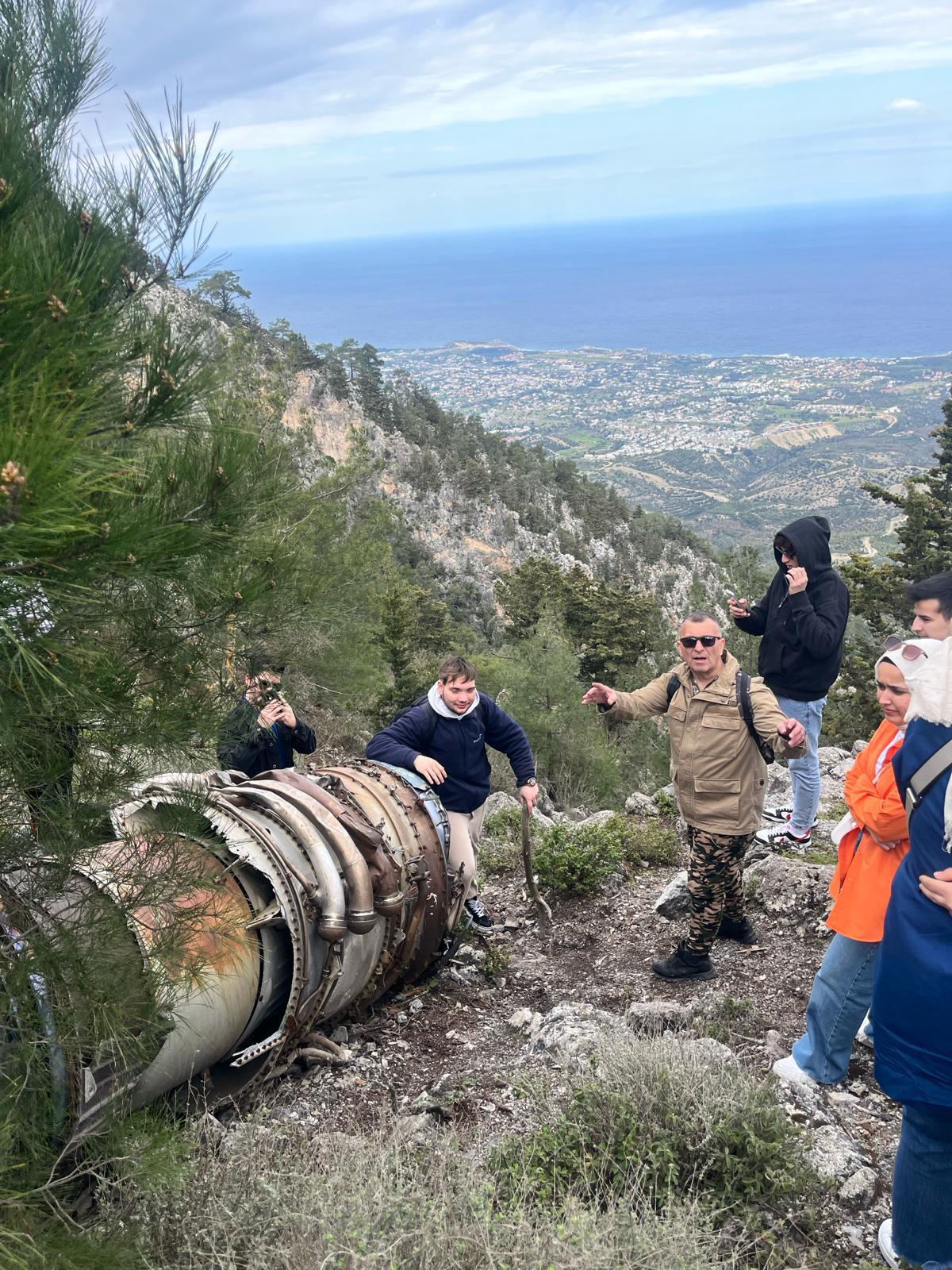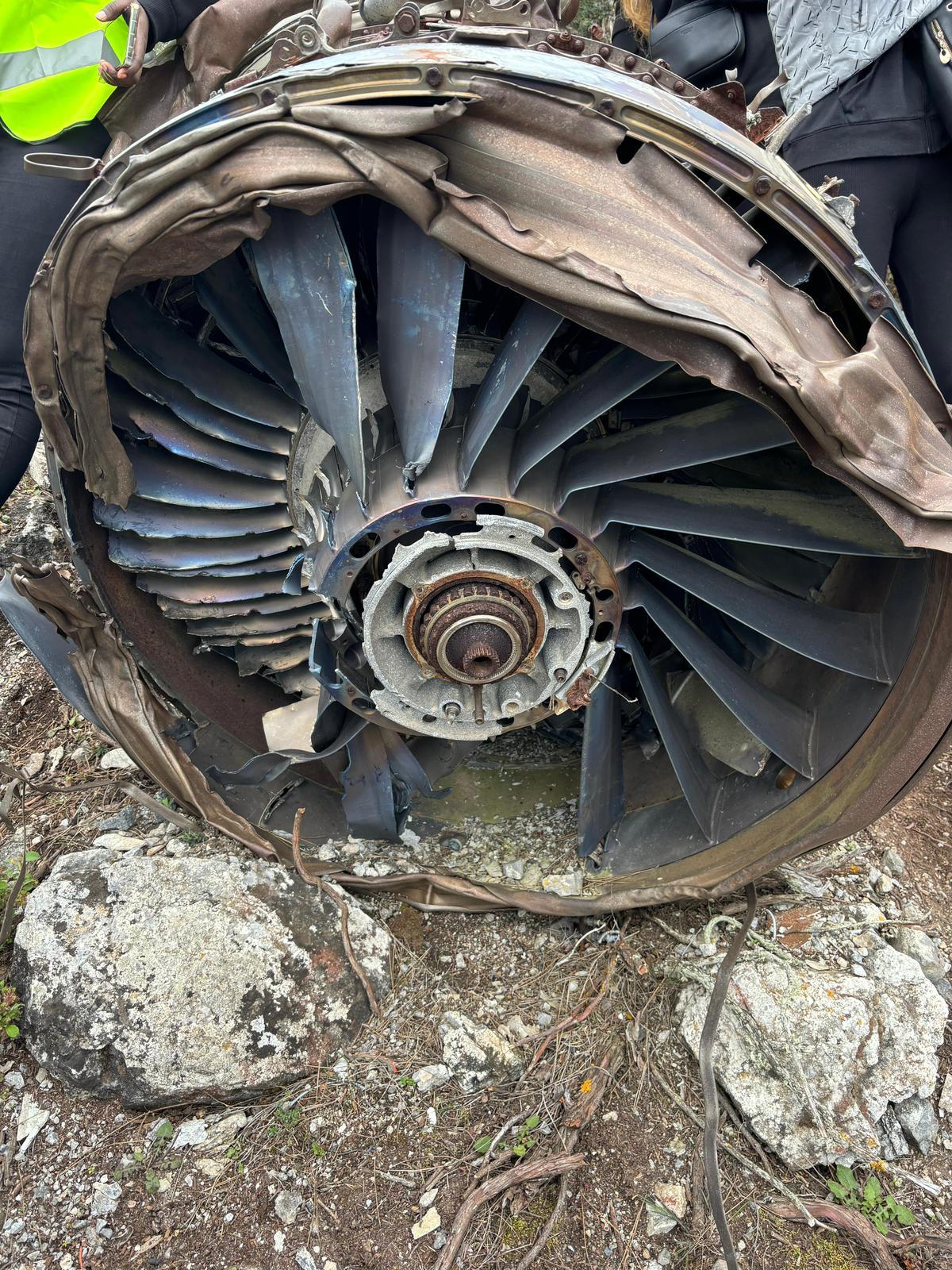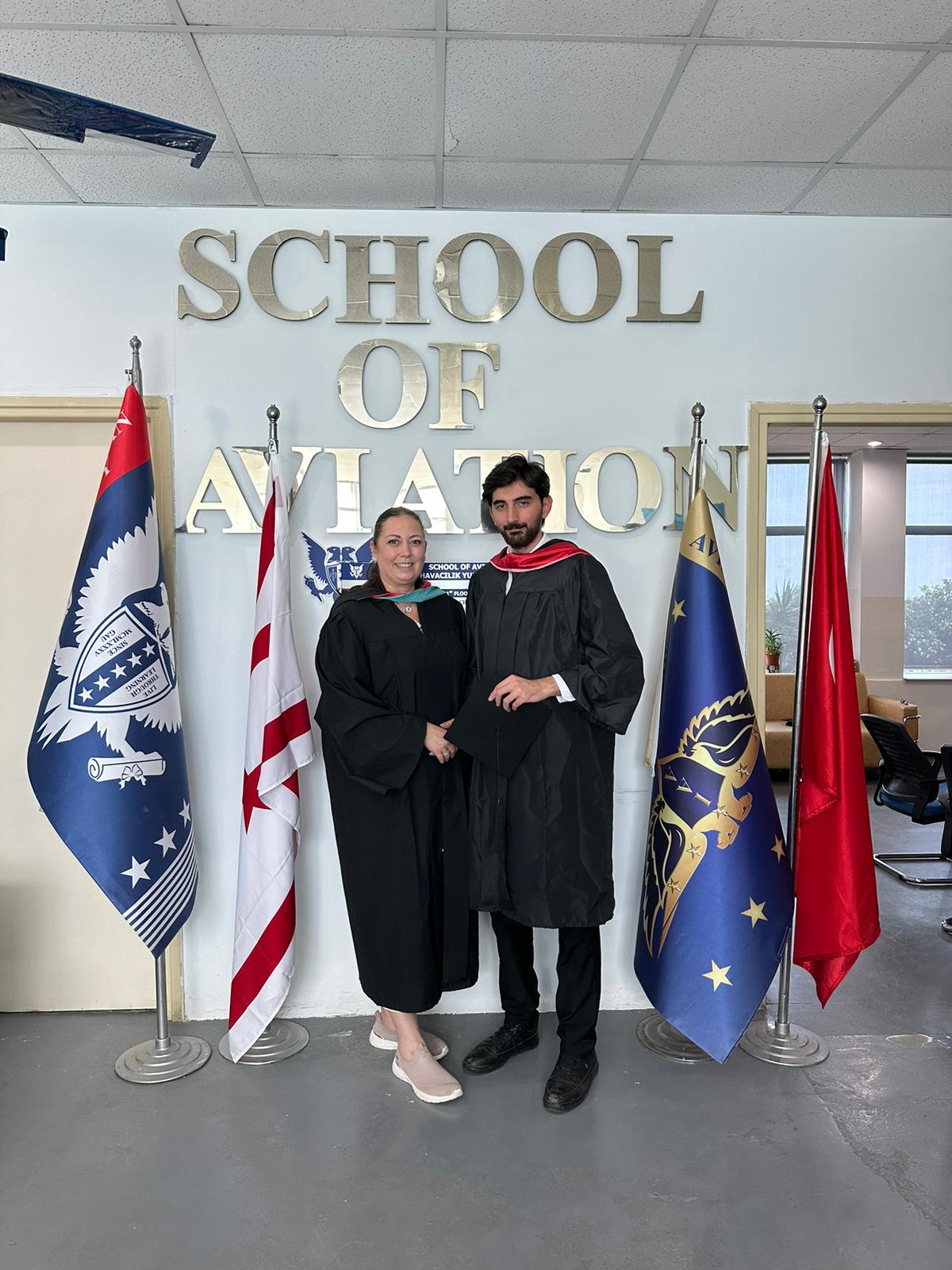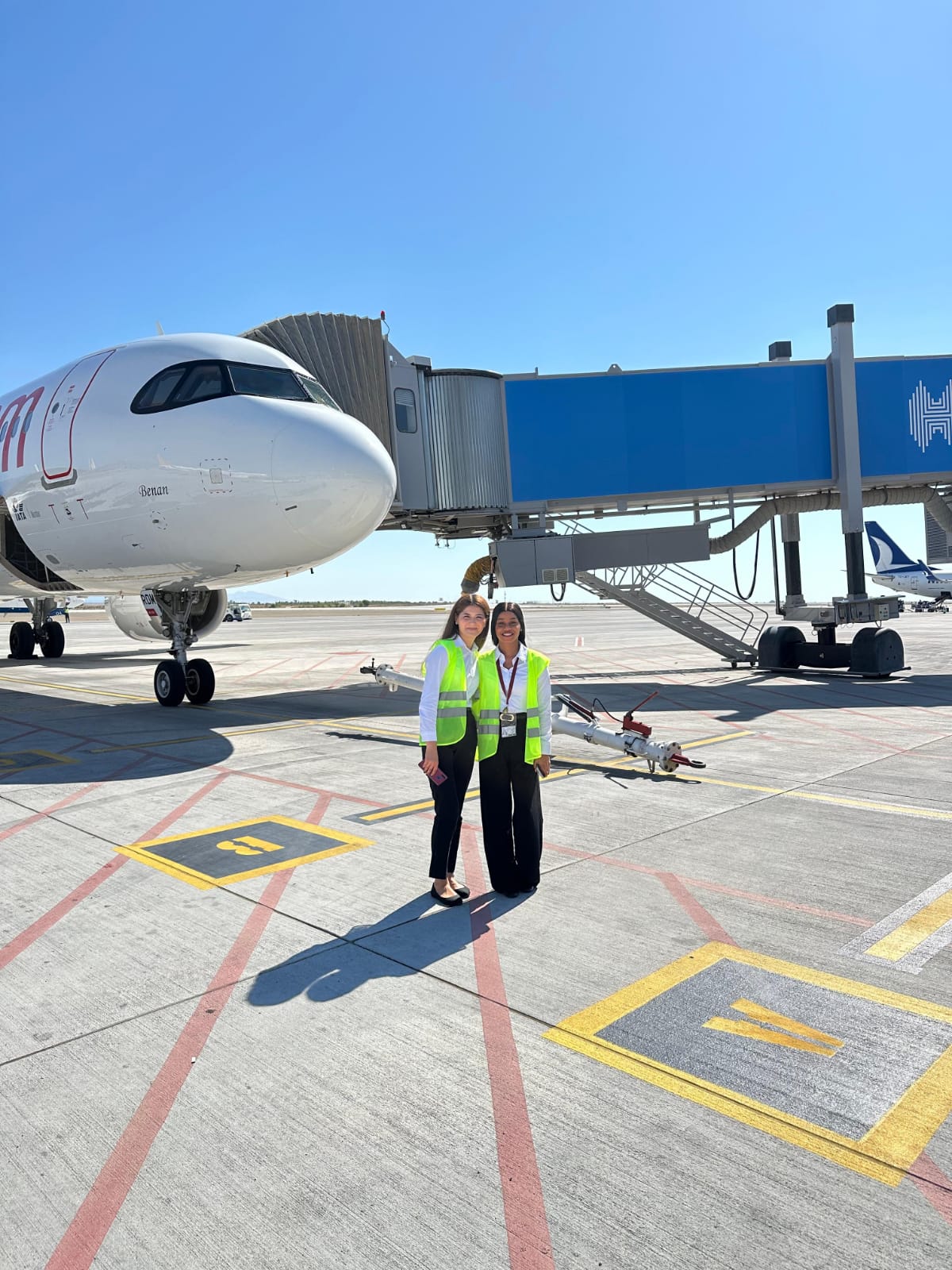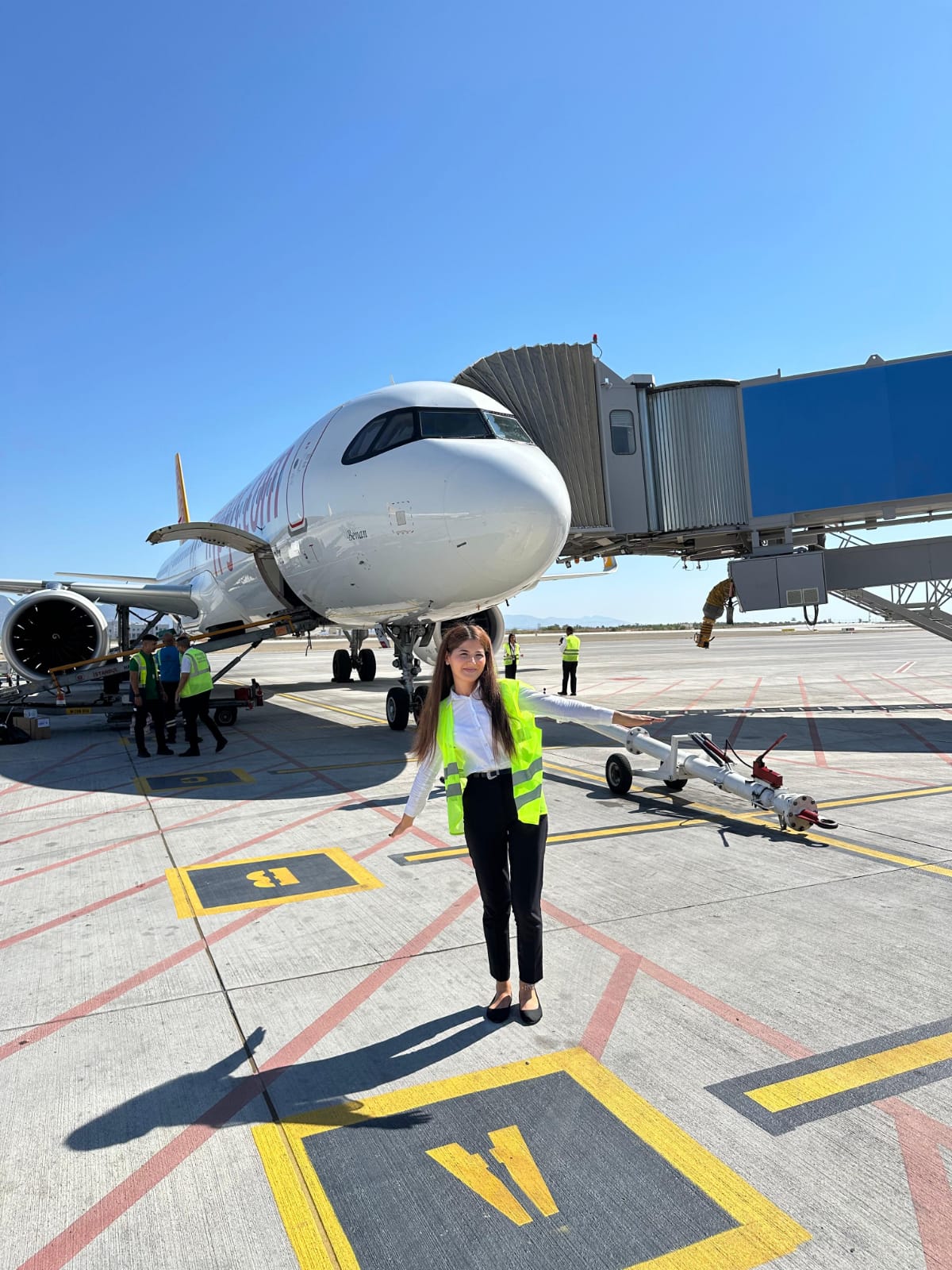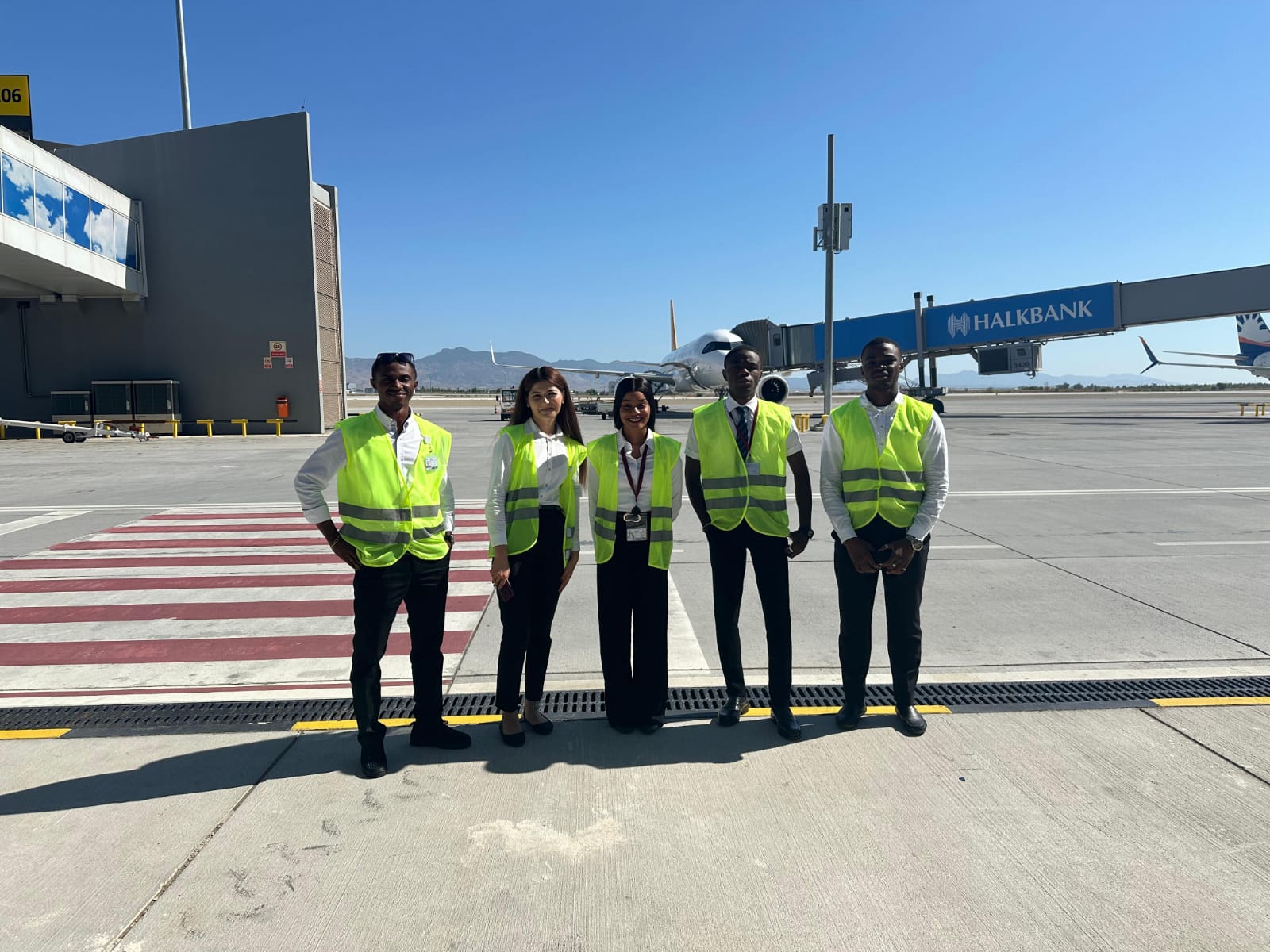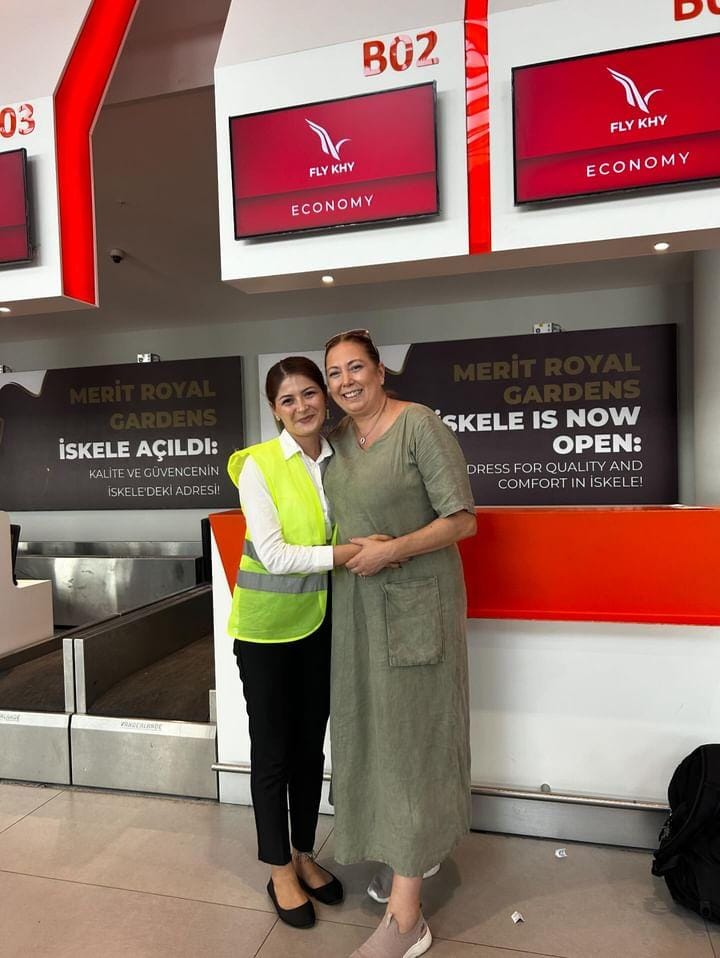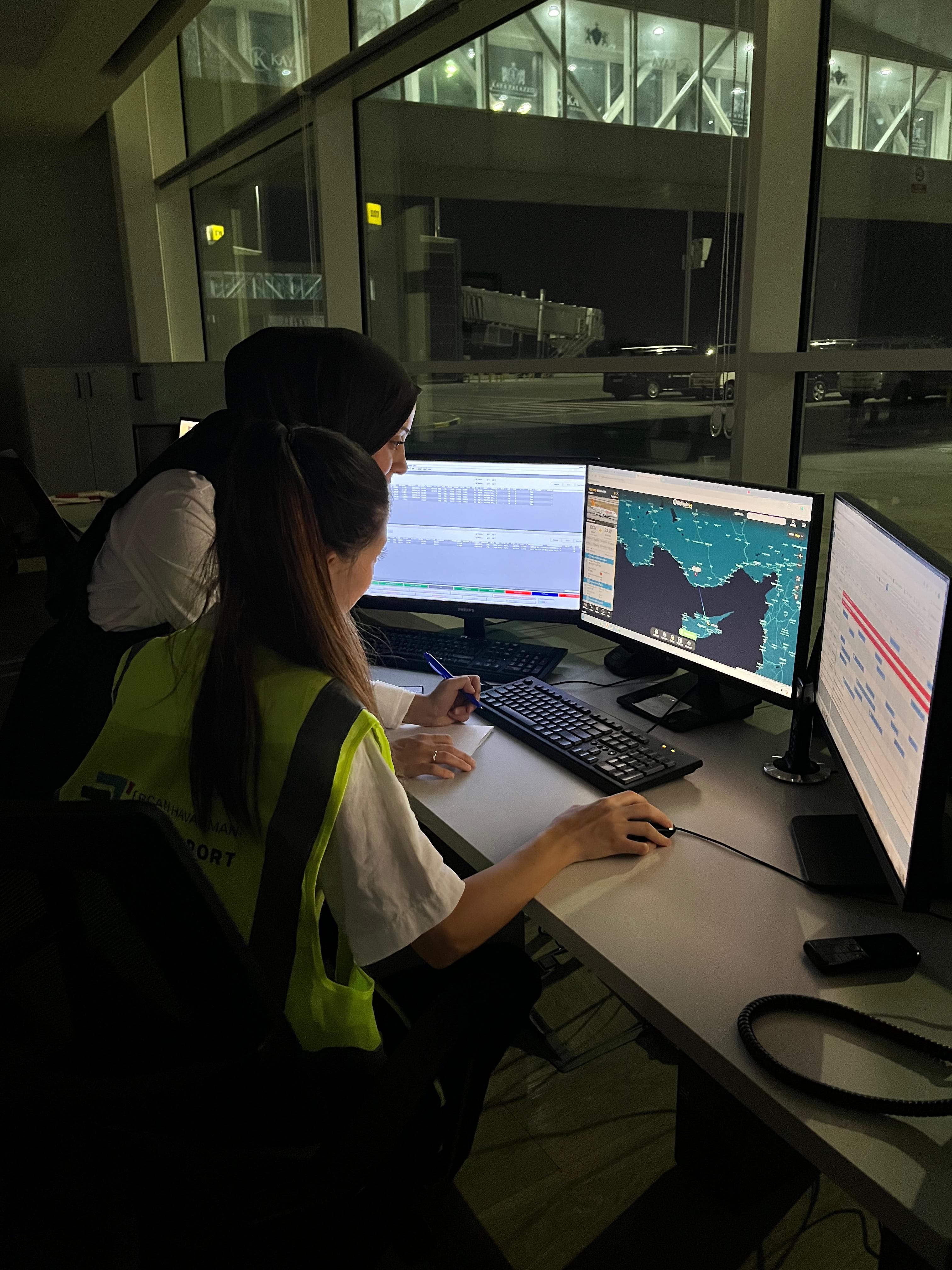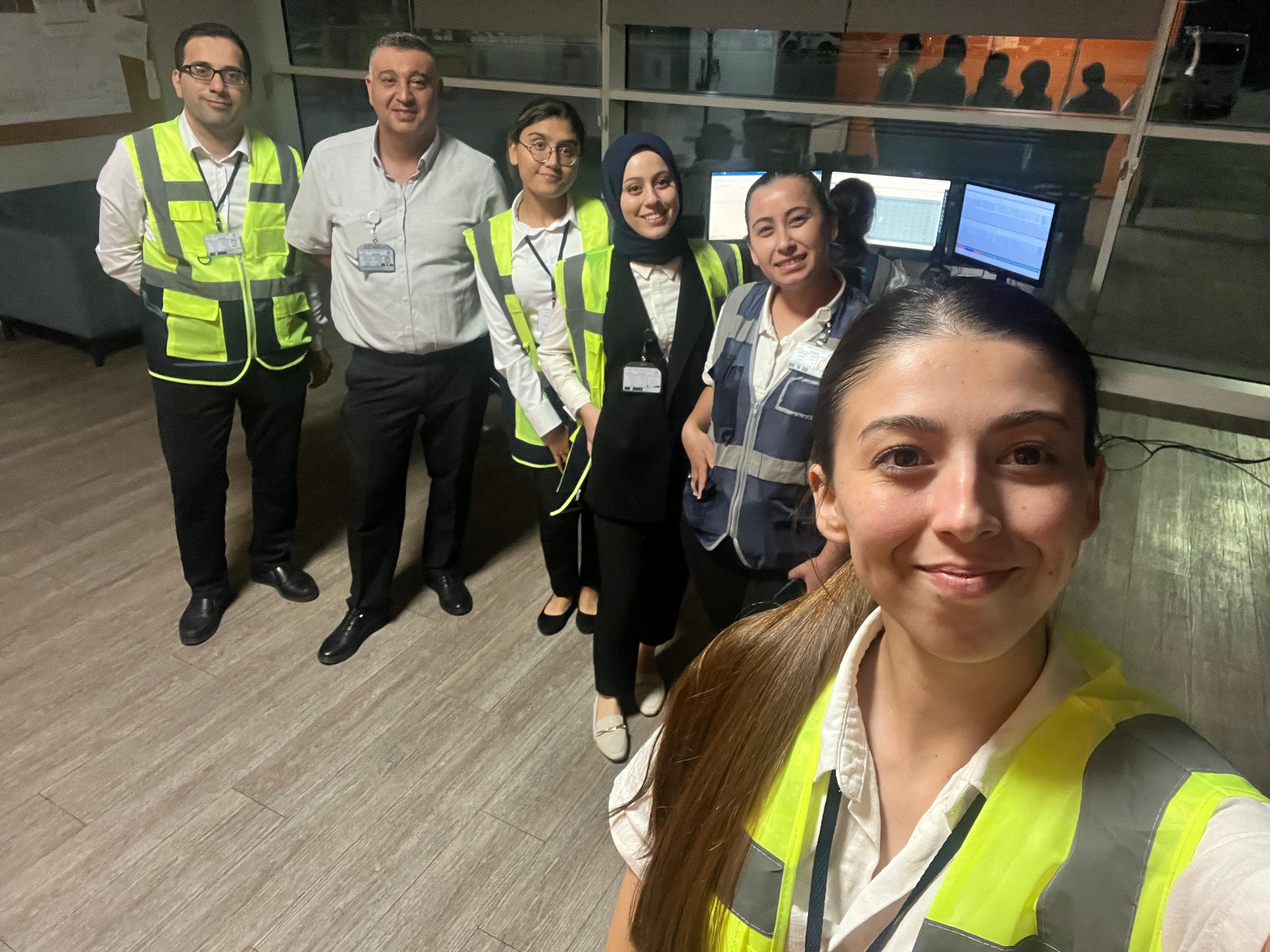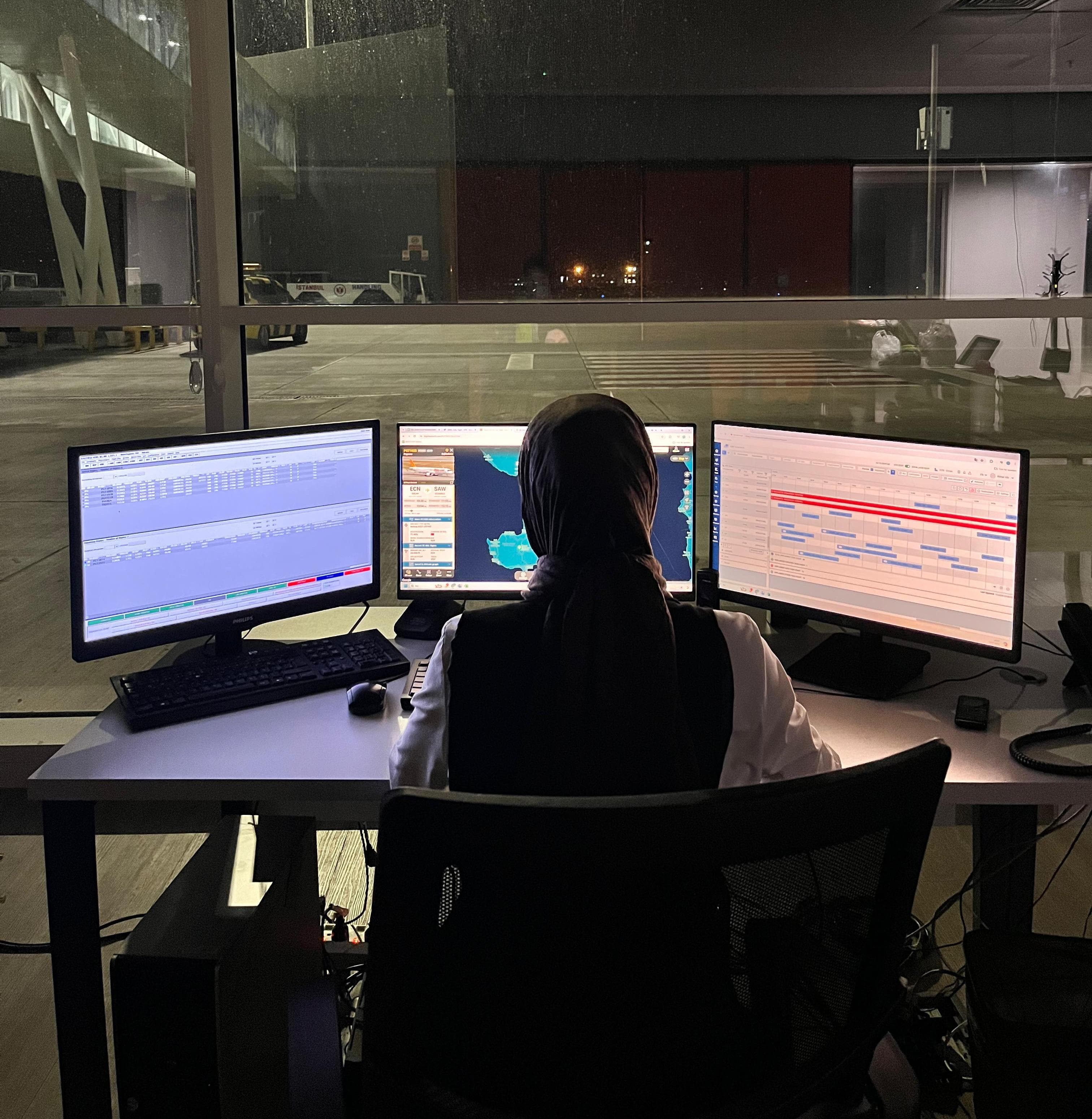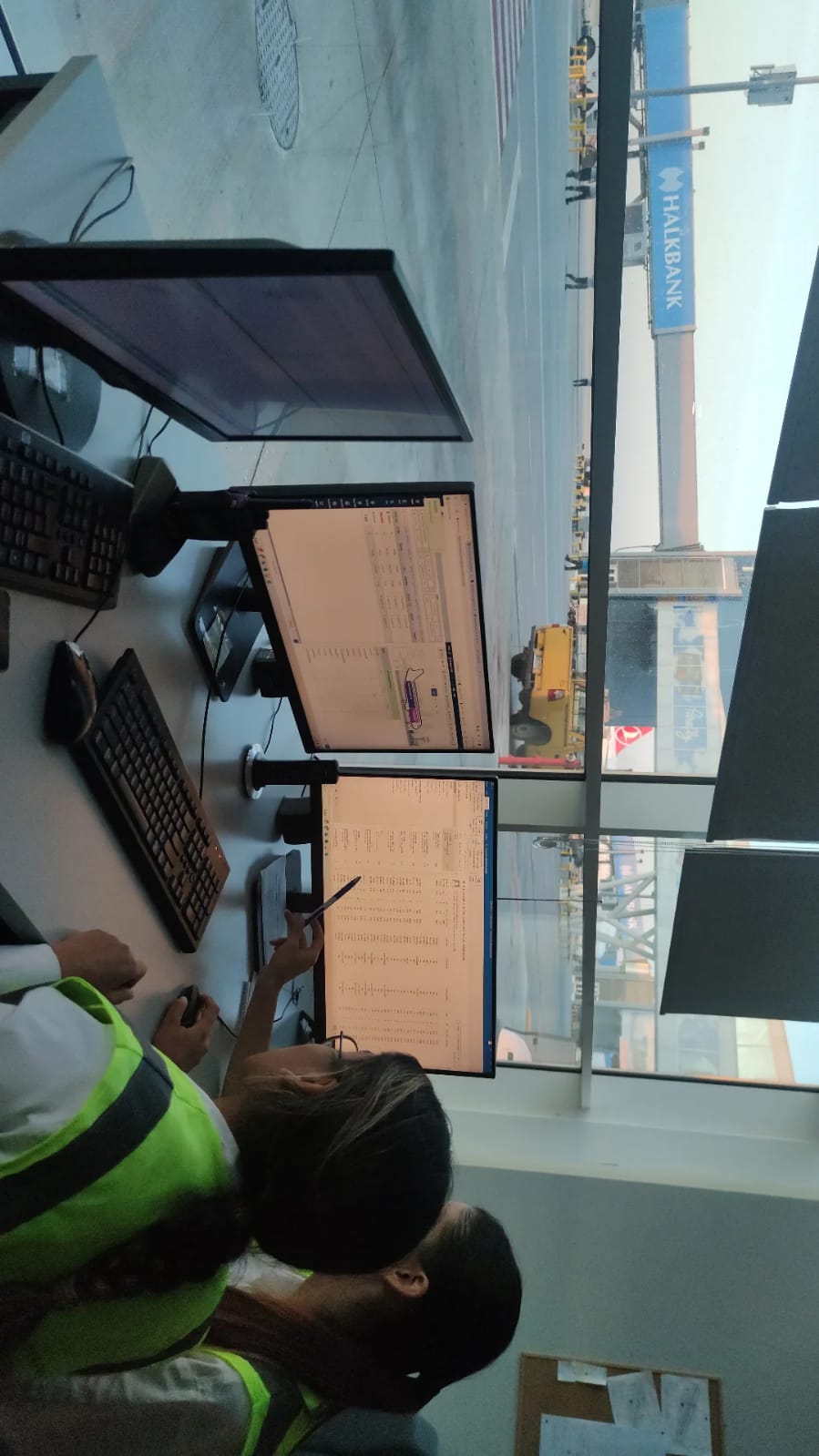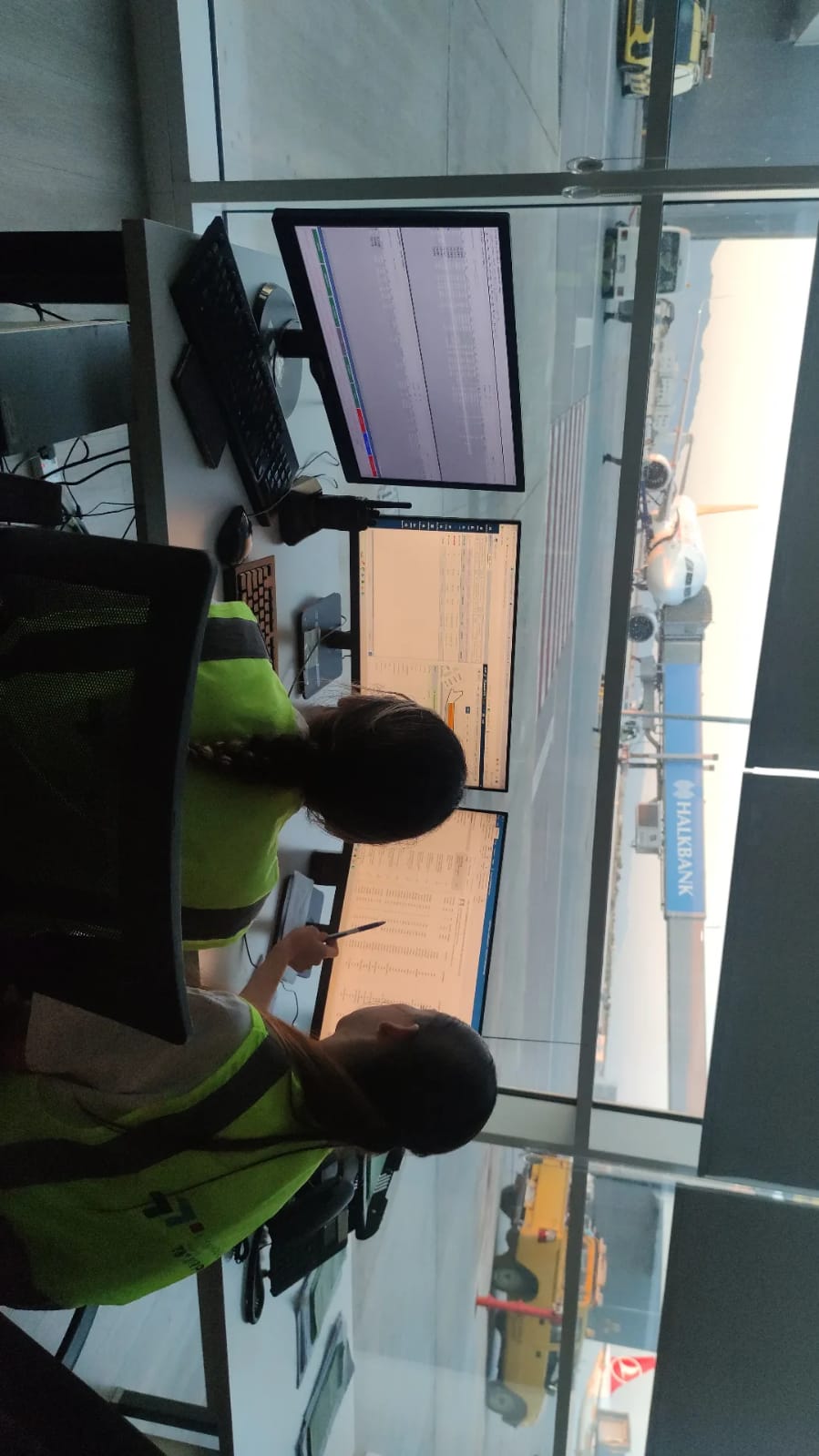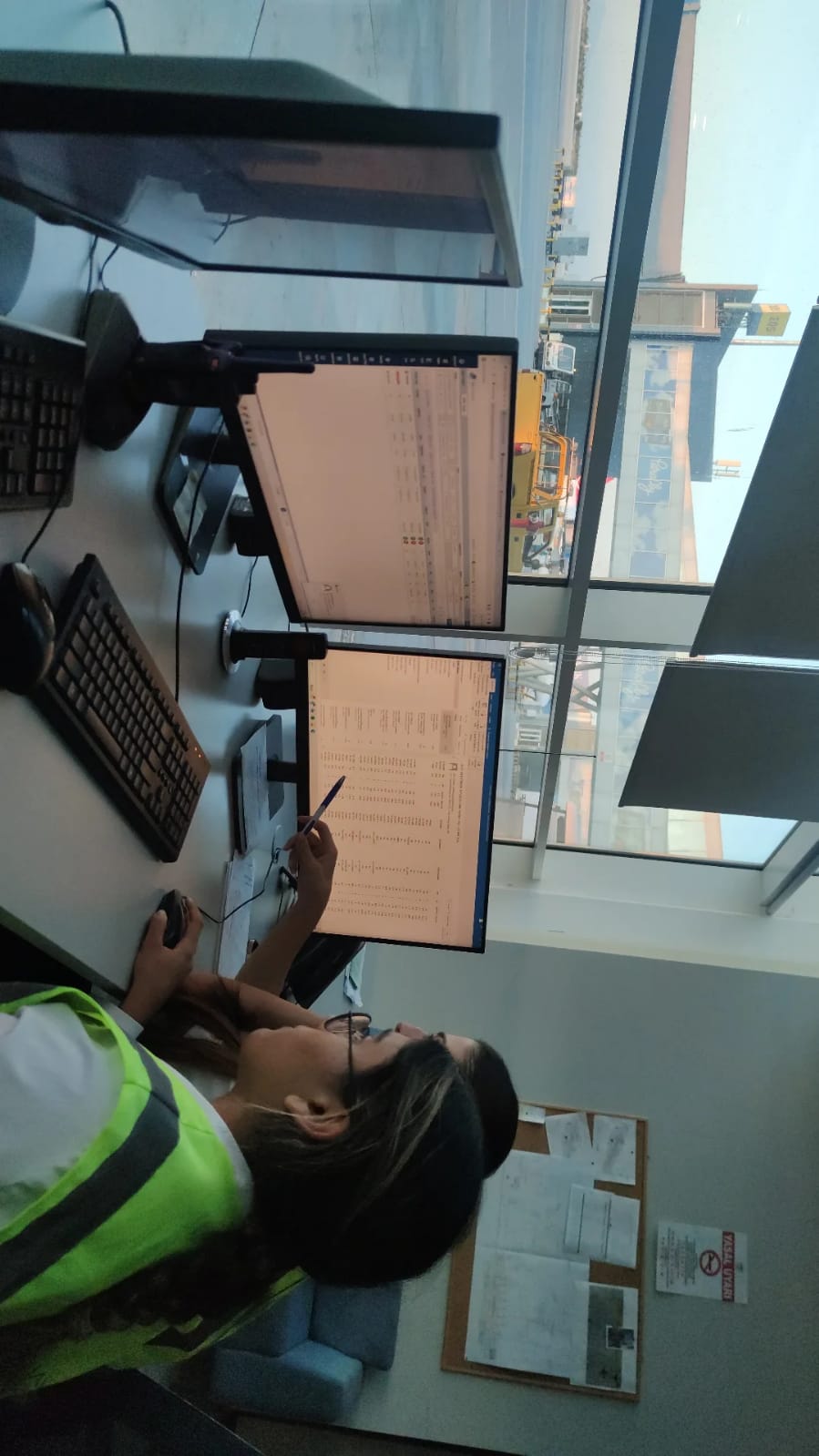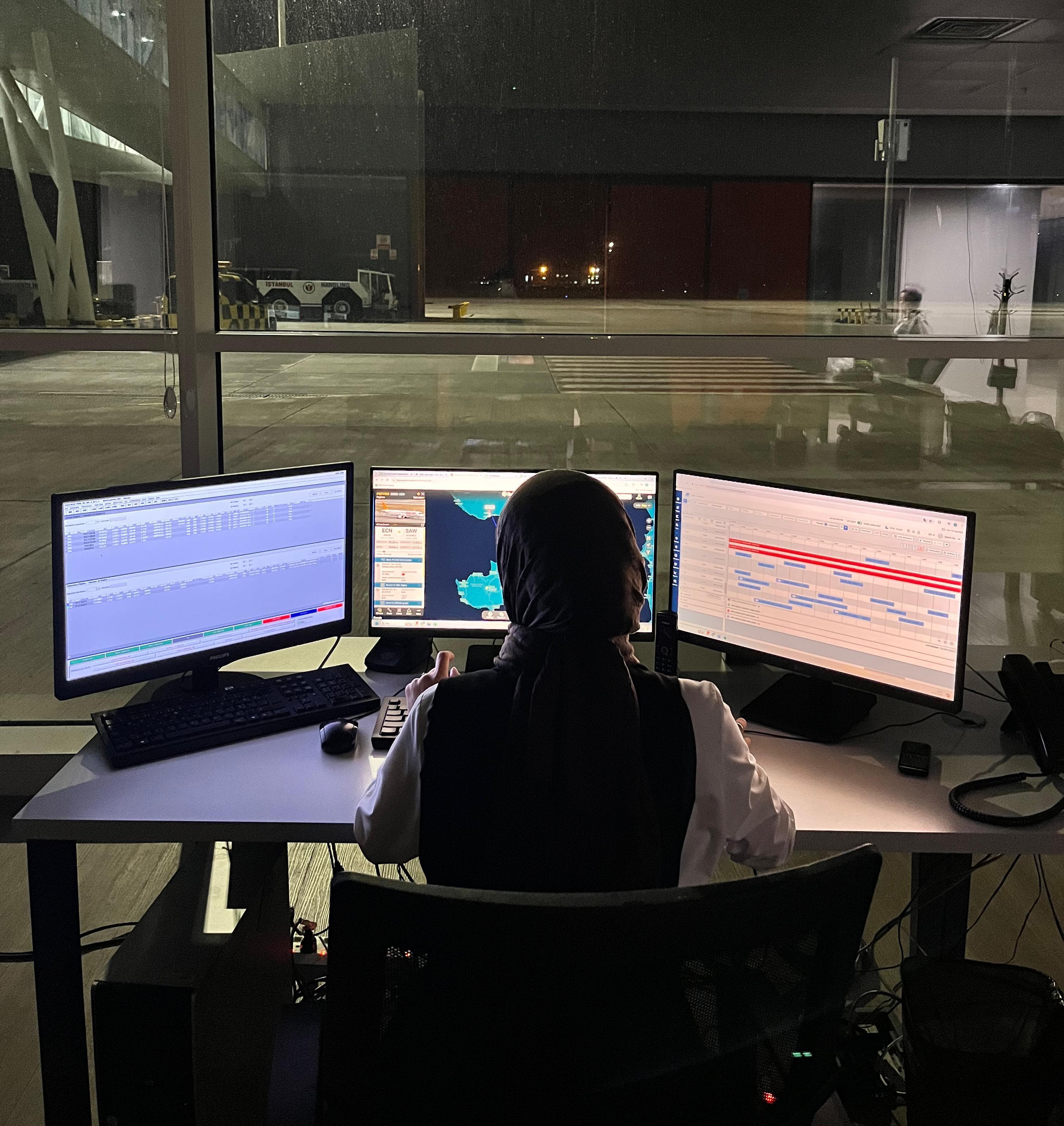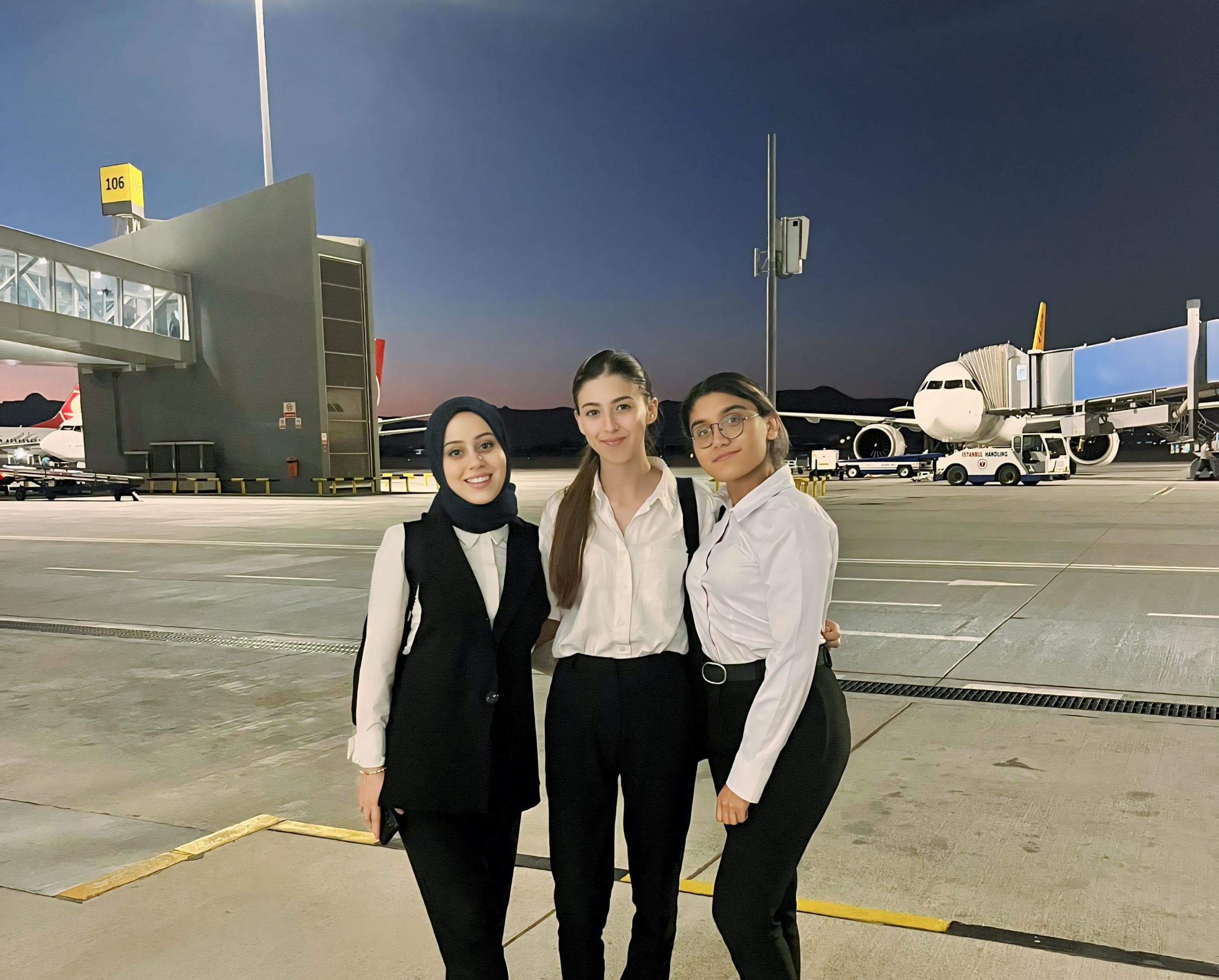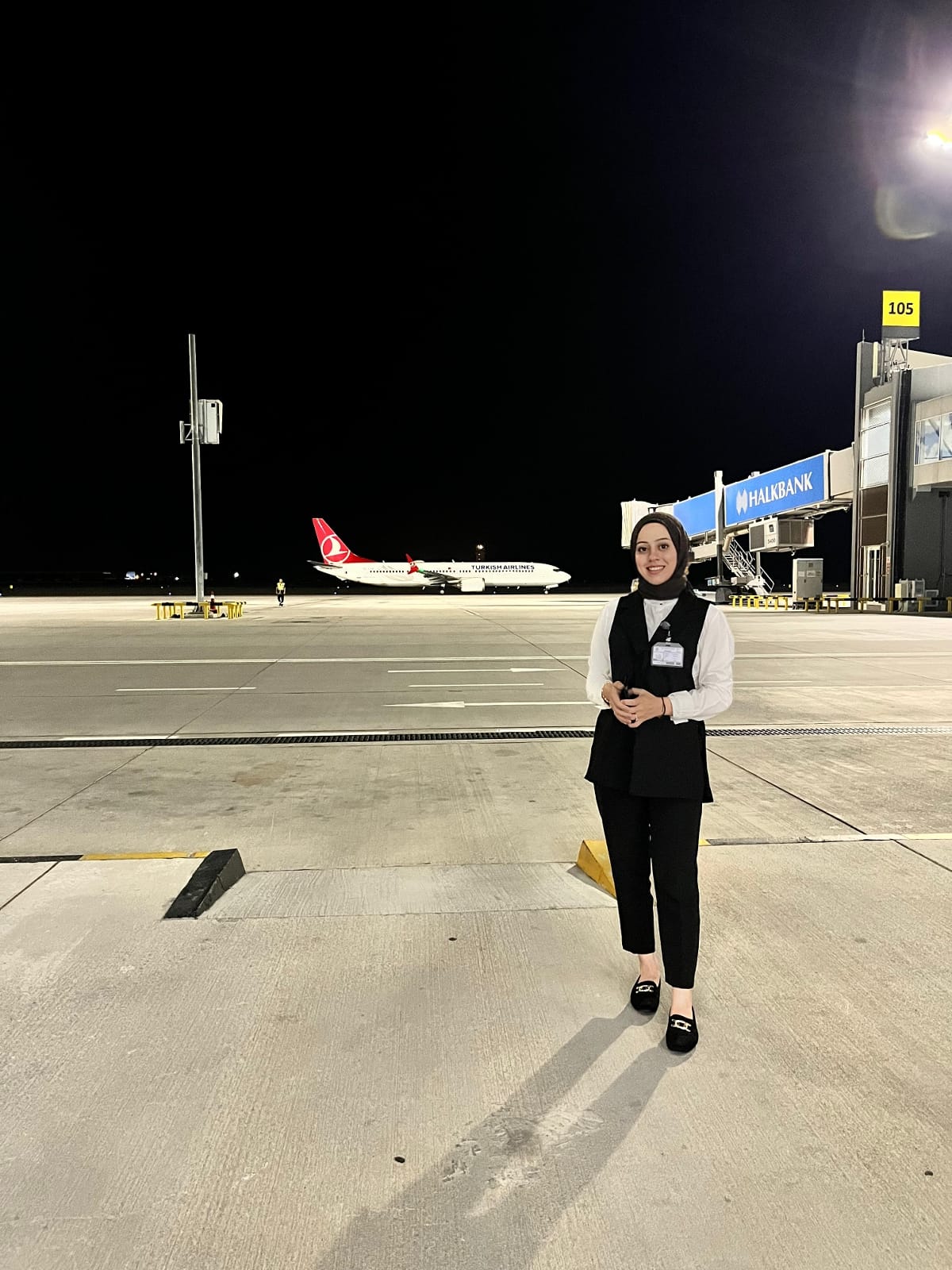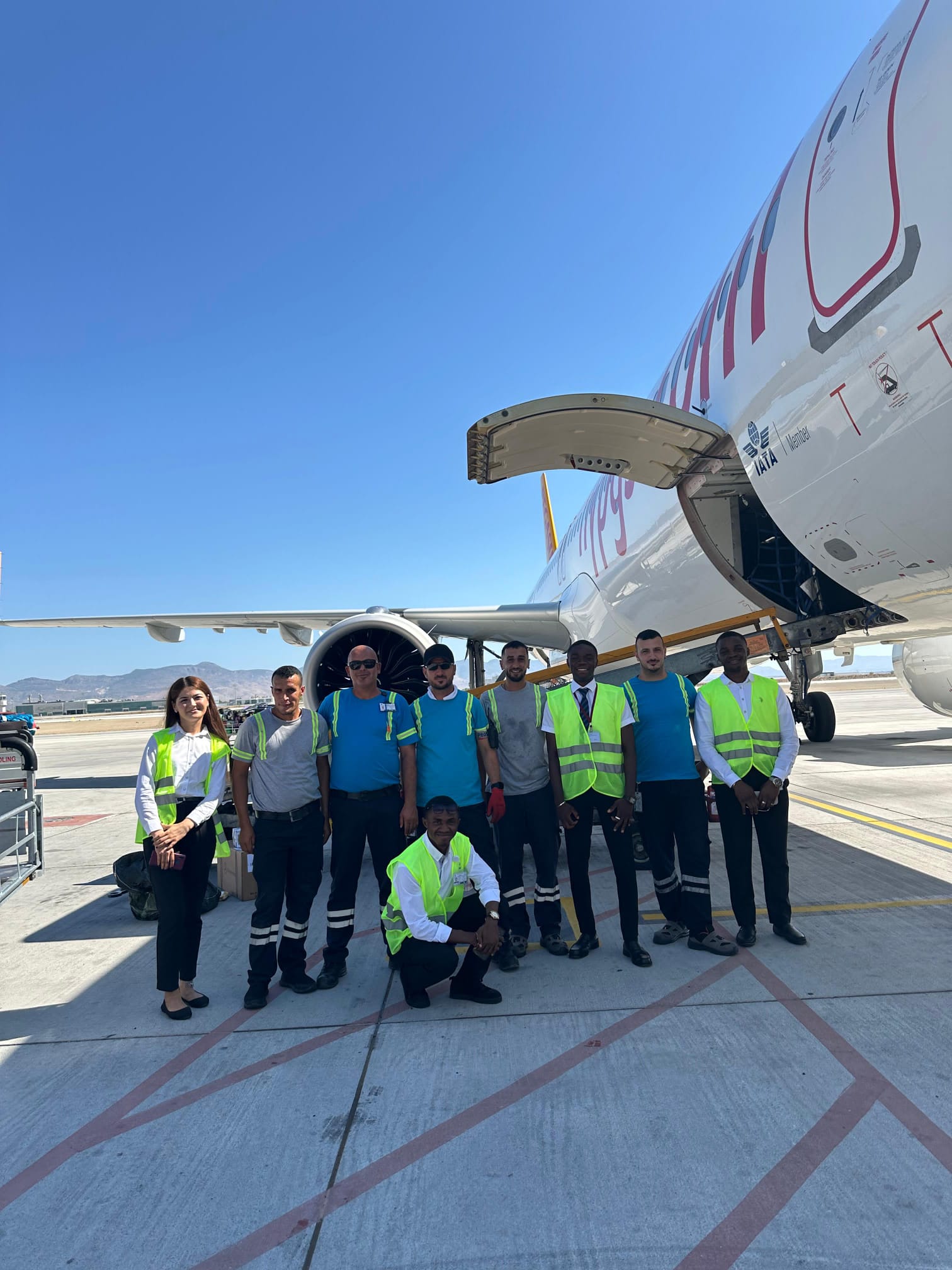| CODE | COURSE NAME | T | P | C | ECTS | Prereq. | Syllabus | Description |
|---|---|---|---|---|---|---|---|---|
| BUS315 | Principals of Marketing | 3 | 0 | 3 | 6 | |||
| CACS106 | Airport & Flight Security | 3 | 0 | 3 | 3 | Download | In this course, basic concepts related to aviation security, the concept of security, terrorism and historical background, security threats in aircraft, airport and flight safety concept, behavior analysis, passenger profiles, precautions, threat levels, international regulations and cockpit security will be explained. | |
| CACS203 | Effective Speaking & Dictation | 3 | 0 | 3 | 3 | Download | The purpose of this course is to help students develop an applicable understanding of effective speaking and dictation and their relevance to aviation safety. | |
| CACS204 | Medical Issues & First Aid Training | 3 | 0 | 3 | 5 | Download | Provide adequate knowledge of administering first aid in emergencies, using only available tools and materials, and administer drug-free treatment until paramedics arrive, thus preventing further deterioration. | |
| CACS206 | In-Flight Entertainment Services | 3 | 0 | 3 | 4 | Download | This course is ideal for students who can express their ideas about inflight entertainment by introducing basic inflight entertainment concepts of the world's leading airlines. In addition, the historical connections of in-flight entertainment systems are introduced by comparing the most common aircraft types in this class. | |
| CACS207 | Emergency Safety Rules I | 3 | 0 | 3 | 3 | Download | This course enables students to learn the basic concepts of Meteorology, the physical processes of Meteorological events and the importance of Aviation. Topics covered in the course are: Definition of meteorology, structure and properties of the atmosphere, gas laws, global circulation, weather systems and their effects on aviation. | |
| CACS208 | Emergency Safety Rules II | 3 | 0 | 3 | 3 | Download | This course enables students to learn the basic concepts of Meteorology, the physical processes of Meteorological events and the importance of Aviation. Topics covered in the course are: Definition of meteorology, structure and properties of the atmosphere, gas laws, global circulation, weather systems and their effects on aviation. | |
| TLP261 | Transportation Management | 3 | 0 | 3 | 5 | |||
| TLP375 | Insurance & Incoterms | 3 | 0 | 3 | 6 | |||
| TLP401 | Custom & Transit Operations | 3 | 0 | 3 | 5 | |||
| TLP405 | Transportation Policies | 3 | 0 | 3 | 5 | |||
| TLP478 | Customer Relations Management | 3 | 0 | 3 | 5 | |||
| Total | 36 | 53 |
| CODE | COURSE NAME | T | P | C | ECTS | Prereq. | Syllabus | Description |
|---|---|---|---|---|---|---|---|---|
| BUS101 | Introduction to Business and Management | 3 | 0 | 3 | 8 | |||
| COMP103 | Computer Application I | 3 | 0 | 3 | 4 | |||
| EGL101 | Development of Reading Skills | 3 | 0 | 3 | 4 | |||
| MAT101 | Business Mathematics I | 3 | 0 | 3 | 8 | |||
| NH001 | National History I | 0 | 0 | 0 | 2 | |||
| PSYC100 | Psychology | 3 | 0 | 3 | 4 | |||
| TFL101 | Turkish as a Foreign Language I (for non natives) | 0 | 0 | 0 | 4 | |||
| Total | 15 | 34 |
| CODE | COURSE NAME | T | P | C | ECTS | Prereq. | Syllabus | Description |
|---|---|---|---|---|---|---|---|---|
| BUS108 | Principals of Management | 3 | 0 | 3 | 8 | |||
| COMP104 | Computer Application II | 3 | 0 | 3 | 4 | COMP103 | ||
| EGL102 | Development of Writing Skills | 3 | 0 | 3 | 4 | |||
| MAT102 | Business Mathematics II | 3 | 0 | 3 | 8 | MAT101 | ||
| NH002 | National History II | 0 | 0 | 0 | 2 | NH001 | ||
| SOCY100 | Sociology | 3 | 0 | 3 | 4 | |||
| TFL102 | Turkish as a Foreign Language II (for non natives) | 0 | 0 | 0 | 4 | TFL101 | ||
| Total | 15 | 34 |
| CODE | COURSE NAME | T | P | C | ECTS | Prereq. | Syllabus | Description |
|---|---|---|---|---|---|---|---|---|
| AVM 201 | Introduction to Aviation | 3 | 0 | 3 | 6 | Download | The course provides an overview of aviation and its history, as well as the main developments and challenges faced by the main activity group in aviation. Some basic information regarding the principles of flying will also be discussed. | |
| BUS205 | Statistics I | 3 | 0 | 3 | 6 | |||
| BUS211 | Macro Economics I | 3 | 0 | 3 | 6 | |||
| CS201 | Communication Skills I | 3 | 0 | 3 | 4 | |||
| TURK001 | Turkish I | 0 | 0 | 0 | 2 | |||
| Total | 12 | 24 |
| CODE | COURSE NAME | T | P | C | ECTS | Prereq. | Syllabus | Description |
|---|---|---|---|---|---|---|---|---|
| AVM 202 | Air Transportation | 3 | 0 | 3 | 6 | Download | This course covers the history, management and future trends of air transportation. It covers the four main segments of air transportation: major carriers, regional carriers, all-cargo carriers and general aviation. Aircraft design, market share, finance, insurance and operations issues are discussed in each segment. The course analyzes the development and implementation of national and international regulations affecting air transportation. Topics include: cost structure, airline tickets, flight crews and security, environmental impacts of aircraft and airports, operating and service characteristics, technological advances, world competition, and intermodal operations. | |
| BUS204 | Financial Accounting II | 3 | 0 | 3 | 6 | BUS203 | ||
| BUS206 | Statistics II | 3 | 0 | 3 | 6 | BUS205 | ||
| BUS212 | Macro Economics II | 3 | 0 | 3 | 6 | BUS211 | ||
| CS202 | Communication Skills II | 3 | 0 | 3 | 4 | CS201 | ||
| TURK002 | Turkish II | 0 | 0 | 0 | 2 | TURK001 | ||
| Total | 15 | 30 |
| CODE | COURSE NAME | T | P | C | ECTS | Prereq. | Syllabus | Description |
|---|---|---|---|---|---|---|---|---|
| AVM 301 | Airline Operations | 3 | 0 | 3 | 5 | Download | This course develops a consolidated understanding of the highly complex economic and competitive environment in which airlines operate. In addition to operational techniques, it also covers areas such as new routes, passenger trends and applied marketing. | |
| AVM 303 | Aviation Meteorology | 3 | 0 | 3 | 5 | This course enables students to learn the basic concepts of Meteorology, the physical processes of Meteorological events and the importance of Aviation. Topics covered in the course are: Definition of meteorology, structure and properties of the atmosphere, gas laws, global circulation, weather systems and their effects on aviation. | ||
| BUS301 | Organisational Behaviour | 3 | 0 | 3 | 6 | |||
| BUS307 | Business Finance | 3 | 0 | 3 | 6 | |||
| BUS315 | Principals of Marketing | 3 | 0 | 3 | 6 | |||
| Elective I | Non Departmental Elective I | 3 | 0 | 3 | ||||
| Total | 18 | 28 |
| CODE | COURSE NAME | T | P | C | ECTS | Prereq. | Syllabus | Description |
|---|---|---|---|---|---|---|---|---|
| BUS306 | Management Information Systems | 3 | 0 | 3 | 6 | |||
| STJ001 | 30 Calender Days Mandatory Internship | 1 | ||||||
| Elective II | Non Departmental Elective II | 3 | 0 | 3 | ||||
| AVM 302 | Airport Management | 3 | 0 | 3 | 5 | This course generally focuses on building knowledge of the airport and airport systems, communication skills, and business skills. | ||
| AVM 304 | Airline Dispatch | 3 | 0 | 3 | 5 | Although dispatcher is an independent profession within the scope of aviation activities, an Aviation Manager will need some basic knowledge of air control, classification of airspace and airports, various distinctions and radio communications. | ||
| AVM 306 | Aviation Law and Legislation | 3 | 0 | 3 | 5 | This course provides an in-depth examination of key aspects of international air law. Students will gain insight into the legal and institutional framework of international air law regimes by examining the roles and functions of the major organizations involved in regulating the industry. Learning how developments and legal issues in air law directly impact the aviation industry and exploring potential solutions to common air law problems will outline the course. | ||
| AVM 308 | Human Factors in Aviation | 3 | 0 | 3 | 5 | This course examines the importance of human factors in aviation and reviews the systems perspective on the role of humans in aviation functions, as well as considers the cognitive architecture of human factors from a maintenance perspective. | ||
| Total | 18 | 27 |
| CODE | COURSE NAME | T | P | C | ECTS | Prereq. | Syllabus | Description |
|---|---|---|---|---|---|---|---|---|
| BUS401 | International Business | 3 | 0 | 3 | 6 | |||
| Elective III | Non Departmental Elective III | 3 | 0 | 3 | ||||
| AVM 401 | Aviation Management I | 3 | 0 | 3 | 5 | This course, which includes all relevant courses from first year to third year, applies this knowledge, theory and principles to the specific requirements, conditions and environment experienced by aviation. | ||
| AVM 403 | Aviation Resource Management | 3 | 0 | 3 | 5 | These courses provide students with information about the roles and responsibilities of human resources departments in aviation organizations and the skills of human resources personnel. | ||
| AVM 405 | Air Traffic Control | 3 | 0 | 3 | 5 | The course provides air traffic management concepts with a special focus on air navigation management of aviation operations. The philosophy of airspace management and important elements of air traffic control will be considered in the light of general aviation approaches. It aims to help students understand the basic principles of air traffic control through important procedures and practices. The course begins with knowledge of air traffic services and continues with flight-related airspace management issues. The course includes air navigation procedures in terms of air traffic control within the scope of theoretical knowledge. | ||
| AVM 407 | General Aeronautics | 3 | 0 | 3 | 5 | This course provides fundamental knowledge of the performance of aircraft, with particular emphasis on lift and drag for aircraft, high-speed subsonic aerodynamics, and turbojet and turboprop aircraft with maximum takeoff weight (MTOW). | ||
| Total | 18 | 26 |
| CODE | COURSE NAME | T | P | C | ECTS | Prereq. | Syllabus | Description |
|---|---|---|---|---|---|---|---|---|
| Elective IV | Non Departmental Elective IV | 3 | 0 | 3 | ||||
| AVM 402 | Aviation Management II | 3 | 0 | 3 | 5 | This course is a continuation of AVM401 and focuses on the deepening of the knowledge provided in the first part, as well as its practical application, mainly in the form of practical training exercises, role games and simulations. | ||
| AVM 404 | Contemporary Aviation Issues | 3 | 0 | 3 | 5 | The aim of this course is to help students develop a workable understanding of current topical issues in aviation and their importance in the aviation industry. The course provides students with the opportunity to examine current issues in the worldwide aviation industry, such as management, training programs, computerization and equipment development. | ||
| AVM 406 | Aviation Safety | 3 | 0 | 3 | 5 | This course is a complete and fully updated guide to commercial aviation safety. Presenting the latest procedures and standards across general and international air traffic and regulatory bodies, this comprehensively revised resource covers the entire commercial aviation safety system, from human factors to accident investigations. | ||
| AVM 408 | Quality Management Systems | 3 | 0 | 3 | 5 | Quality philosophy will be considered in the light of total quality management analysis and measurement tools, quality costs and quality management business approaches. The course begins with general definitions of quality from a business perspective and continues with the basic principles of total quality management and human factors, standards and certification issues. The course also provides an overview of quality management system tools and techniques used in the aviation era. | ||
| AVM 430 | Graduation Project | 3 | 0 | 3 | 5 | The student will choose a subject of interest related to aviation and conduct his or her own research in this field. The result will be presented as a written thesis of approximately 20,000 – 25,000 words. The student chooses his/her advisor and the department board examines and grades the thesis. | ||
| Total | 18 | 25 |
OBJECTIVES OF THE PROGRAM
Over the past few decades, advances in aviation technology, infrastructure and management practices have significantly transformed the aviation industry. Aviation Management is expected to be one of the most dynamic and rapidly growing sectors, offering promising career opportunities for people with specialist skills.
The main aim of our department is to prepare our students to adapt to developing technologies and practices in the aviation industry, regardless of the career path they choose. Our program provides students with a solid foundation in various areas of Aviation Management including airline operations, airport management, aviation security and regulatory compliance. Additionally, the program instills a strong ethical foundation that allows students to demonstrate initiative and leadership in a variety of aviation careers.
Some potential career paths for our graduates include:
- Airline operations and management
- Airport management
- Aviation consultancy
- Air traffic control
- Aviation safety and regulatory bodies
Students who successfully complete the Aviation Management program and gain the necessary qualifications will be awarded an Aviation Management Undergraduate Diploma.
Aviation managers use their comprehensive understanding of aviation operations, safety regulations and management principles to improve the efficiency and safety of aviation services.
Career opportunities in Aviation Management cover a variety of areas including airline operations, airport management, aviation consulting and regulatory oversight. Aviation managers are responsible for the strategic planning and operational management of airlines and airports, ensuring compliance with aviation safety regulations and optimizing the passenger and cargo transport experience.
Graduates can find employment in the following fields:
- Airlines perform operational and administrative duties
- Airports, management facilities and services
- Aviation consultancy firms providing expert advice on industry applications
- Regulatory bodies that ensure compliance with aviation standards and safety regulations
The following program educational objectives outline the career and professional achievements our graduates are expected to complete after graduation:
1. They apply aviation management knowledge to identify and solve industry-related problems, using critical reasoning skills to succeed in their professional or academic careers.
2. Demonstrate professional and personal leadership in multidisciplinary and international aviation environments.
3. Will be able to apply the basic principles and practices of aviation management in the design and operation of aviation systems.
4. Stay informed and engaged with the evolving challenges of the aviation industry through continuous self-improvement
The Faculty of Aviation values modern concepts and innovative teaching methods to support educational goals alongside traditional methods. Regular attendance is mandatory for all courses except graduation projects. Various training methods are used depending on the course and instructor. Practical exercises, including IT-based activities, are integrated to enhance theoretical understanding and develop practical skills, aiming to increase student engagement.
Traditional classroom education is necessary to convey basic knowledge. Therefore, a minimum of 75% attendance is expected in all courses. Problem-solving sessions are integrated with theoretical education and carried out under the supervision of a lecturer or instructors.
An undergraduate student is eligible to graduate after successfully completing all required courses, (132 credits) reports and practical assignments by collecting the minimum credit hours required for graduation. A cumulative GPA of 2.00 or above and financial good standing are also required.
The University Senate decides on graduation upon the recommendation of the faculties.
In the diplomas prepared by the Registrar's Office, the name of the program, graduation date and degree received are stated.
